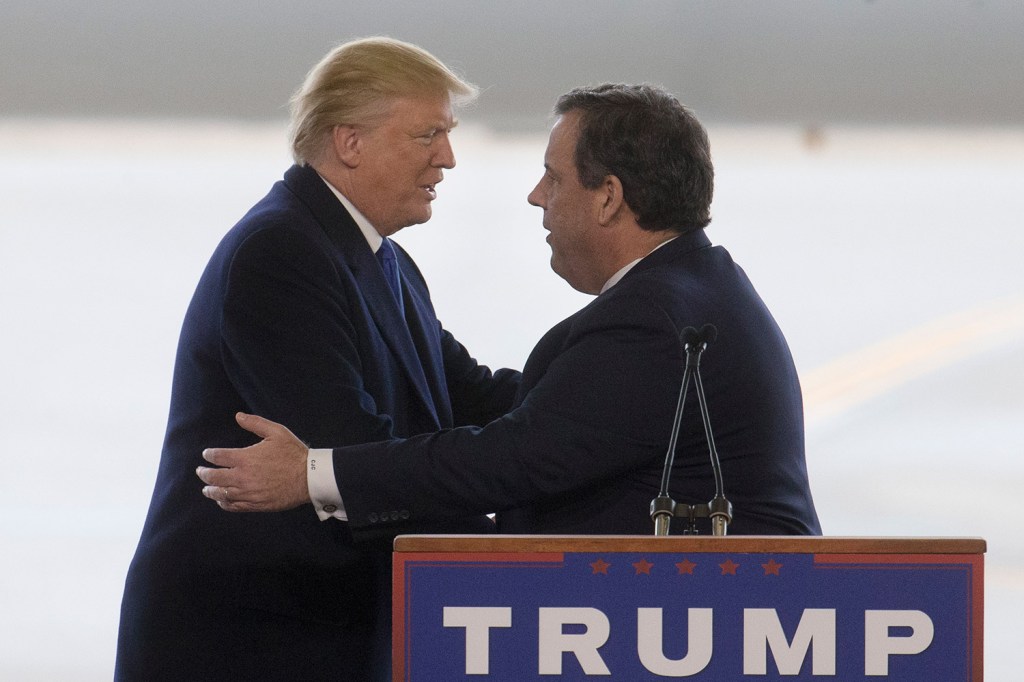WASHINGTON — Yes, Donald Trump could win the White House in November.
His victories in Super Tuesday states accelerate his march toward the Republican nomination. He’s not there yet, and Sens. Marco Rubio and Ted Cruz and Gov. John Kasich of Ohio showed strength in small doses.
But the real estate mogul won Tuesday from New England to the South, in Massachusetts, Virginia, Georgia, Alabama and Tennessee. He proved he can beat heavily funded, politically sophisticated opponents despite increasingly ugly, often disturbing, attacks and insults. And he’s shown strength in blue-collar areas that could put onetime battlegrounds such as Pennsylvania back into play for the Republicans.
Taken together, “he’s a formidable candidate” in a still-hypothetical but increasingly likely fall matchup against Democrat Hillary Clinton, said Tim Malloy, assistant director of the Quinnipiac University poll.
None of that means Trump is a sure thing in the fall. No one ever is in early March. And as he emerges as the presumptive Republican nominee, he faces a new series of challenges.
The national map features electorates far more ideologically and racially diverse than the Republican base Trump has so effectively wooed. He’d have to compete in states where African-American and Hispanic voters are influential blocs, and they’ve shown little inclination to back him.
Most daunting, Trump could face not a pair of first-term U.S. senators, a soft-spoken retired neurosurgeon or a nice-guy governor, but a former secretary of state with considerable experience in waging brutal campaigns. Clinton is expected to raise questions about the volatile Trump’s judgment and temperament, as well as provide vivid reminders of his broadsides against Mexicans, Muslims and women.
Trump would also face challenges such as those he has begun to endure only in recent days, questions about his resume as well as his style. “The criticism now concerns whether he’s a con man, not an entertainer,” said Lee Miringoff, director of the Marist Institute for Public Opinion in New York.
TRUMP’S VULNERABILITY
Trump’s temperament has also made him vulnerable. After he appeared to fumble an interview question Sunday about the Ku Klux Klan, Clinton and Democratic rival Bernie Sanders branded him a “hatemonger.” 2012 Republican presidential nominee Mitt Romney called it “coddling of repugnant bigotry.”
Trump’s rivals did offer some warning signs Tuesday. Though Trump won Virginia, Rubio, a senator from Florida, was leading among better-educated, higher-income and moderate voters as well as independents, according to network exit polls.
In Vermont, Kasich was topping Trump among women, seniors, higher-income and better-educated voters. And Cruz was doing well in his home state of Texas, as well as Arkansas and Oklahoma.
Also, Trump still refuses to release his tax returns, even though there’s no legal reason he cannot. Critics are raising questions about the Trump Entrepreneur Institute, whose Better Business Bureau ratings fluctuated while it was open.
DEFYING POLITICAL LOGIC
So far, Trump has defied the logic of politics. No matter the remark, he survives and thrives, and polls show him in a virtual tie with Clinton. Quinnipiac’s latest poll showed Clinton with a 44 percent to 43 percent lead over Trump. Suffolk University’s Political Research Center put Trump up 44.6 percent to 43.1 percent.
Even Trump’s unusually high Quinnipiac unfavorable rating – 57 percent – is not necessarily a liability. Clinton’s is 58 percent.
Six in 10 say Trump is not honest or trustworthy, but two-thirds say that about Clinton. She has been under scrutiny for using a private email server while secretary of state. The FBI is looking into the handling of sensitive information after some of the emails contained classified data.
Trump has some advantages. Polls show that he does well in general election matchups with men and with voters over 50, and that he wins white voters and voters without college degrees by sizable margins.
He has demonstrated deep support among Republicans. In Massachusetts, Trump easily won every age and income group, as well as moderates and conservatives, exit polls found. He scored the same victories in the South, winning among the same groups in Alabama, Georgia and Tennessee.He’s also picking up some establishment support, or at least grudging acceptance.
Some conservative groups have launched a “Stop Trump” movement, and Rubio has been relentless, accusing Trump of “sticking it to the little guy.”
But Republicans have long been united in their disdain for Clinton, and history suggests that party loyalists often come home at the end, no matter how distasteful they find their candidate.
In 1968, Vice President Hubert Humphrey had infuriated antiwar Democrats so much he sank below 30 percent in September polling. By Election Day, he had nearly caught up and lost the popular vote to Richard Nixon by 0.7 percentage point.
Election Day is eight months off, but today this much is obvious, said Quinnipiac’s Malloy: “Trump is a viable general election candidate.”
Copy the Story LinkSend questions/comments to the editors.



Success. Please wait for the page to reload. If the page does not reload within 5 seconds, please refresh the page.
Enter your email and password to access comments.
Hi, to comment on stories you must . This profile is in addition to your subscription and website login.
Already have a commenting profile? .
Invalid username/password.
Please check your email to confirm and complete your registration.
Only subscribers are eligible to post comments. Please subscribe or login first for digital access. Here’s why.
Use the form below to reset your password. When you've submitted your account email, we will send an email with a reset code.